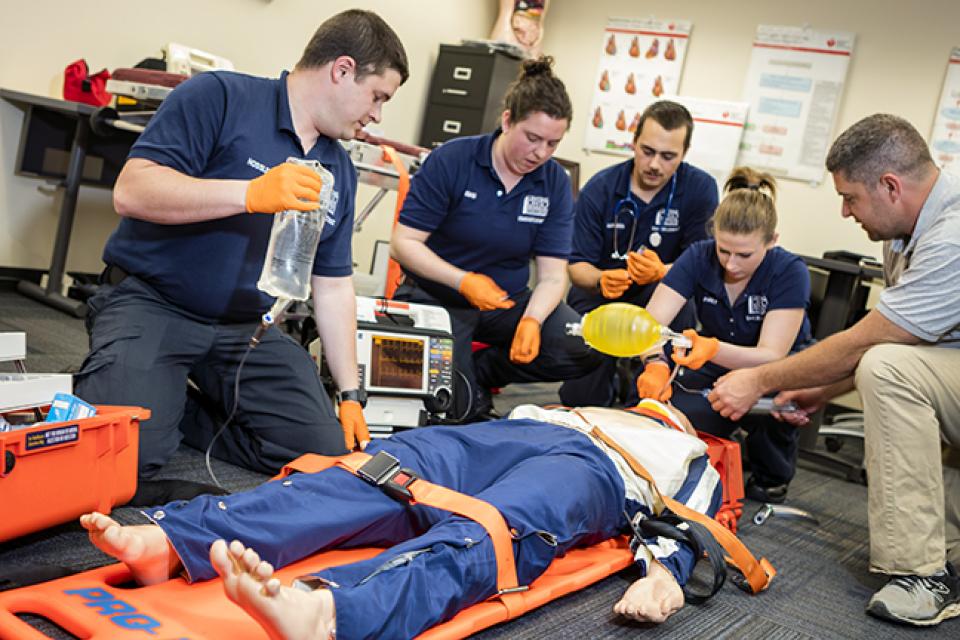Industry-Recognized Credentials
Some professions require employees to become certified or licensed. If you completed formal training that resulted in an industry-recognized credential, you may be eligible for college credit. COTC will need a copy of your professional license or certification and a form must be completed. The state of Ohio also has programs like the One-Year Option and ITAG. Learn more below.
Accepted certifications and licensure include, but are not limited to:
- Chemical Dependence Counselor Assistant (CDCA) certification
- CompTIA A+ certification
- Cosmetology license
- Emergency Medical Technician (EMT) certification
One-Year Option
The state of Ohio has a One-Year Option program that allows public colleges and universities to award licensed professionals college credit hours, to provide students an opportunity to complete an associate degree in half the time (typically “one year” – or less).
For example, students who complete a cosmetology program (900+ hours) and get a cosmetology license are eligible for 30 college credit hours (which is enough credit to be halfway done with an associate degree).
View the currently approved programs in the One-Year Option established by the state of Ohio.
Students who apply to COTC and have a professional certification or license, will need to submit a copy of their current professional certification or license to be reviewed and awarded college credit.
Portfolio Assessment
Work experience and informal training that does not result in an industry-recognized credential (certification or licensure) may be evaluated for college credit through a portfolio review process. Students may be eligible for college credit due to things like: on-the-job training, business ownership, civic leadership, volunteer work or independent study.
It’s important to note, there will be portfolio instructions and expectations. Students will receive guidance from a Gateway Academic Advisor to complete a portfolio that showcases experience, skill(s) and knowledge.
The first step in building a portfolio is to browse the COTC course catalog and identify courses you feel fit your experience, skill(s) and knowledge. Every course at COTC has objectives students meet to pass the course. A portfolio will show how you have enough proficiency to meet a course’s objectives, in lieu of taking a course.
Portfolios will need to include the following:
Resume
Students will need to provide a current resume outlining their professional work experience, skills and any learning they have done, in alignment with each course they seek to earn credit for.
Prior Learning
CTAG
Students who successfully complete certain technical programs or classes, often at vocational schools or career centers, while in high school and/or after high school graduation are eligible to receive transfer credit at Ohio public colleges and universities. This transfer of credit is described by the State of Ohio Career-Technical Assurance Guides (CTAG).
Credit by Examination
Students can choose to take or may have already taken select exams or tests that can qualify them for college credit without taking a college class.
Students should keep in mind there is typically a cost per exam, and each exam has a minimum or specific score that must be met to earn college credit.
Click each tab below to learn about exams and subject areas, along with minimum or specific scores Central Ohio Technical College (COTC) will review and accept.
AP
High school students can choose to take or may have taken Advanced Placement (AP) courses. At the end of the AP course, an exam can be taken to determine whether college credit can be awarded for the completed course. Students must earn a minimum test score per subject to earn college credit.
Students who complete an AP exam can request their test scores be sent to Central Ohio Technical College (COTC) through the College Board website. Some high schools will indicate AP test scores on a high school transcript. Students can check with their high school to see if they need to request an AP test score be sent to COTC.
Alternative Credit Options
Many people enjoy learning to enhance their knowledge and/or to expand upon an existing job or career. There are companies that offer learning and in line with the American Council on Education (ACE), many colleges across the United States recognize the level of learning being offered and completed is worthy of college credit. Examples of companies offering college-level learning include: Straighterline and Study.com.





